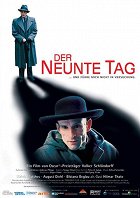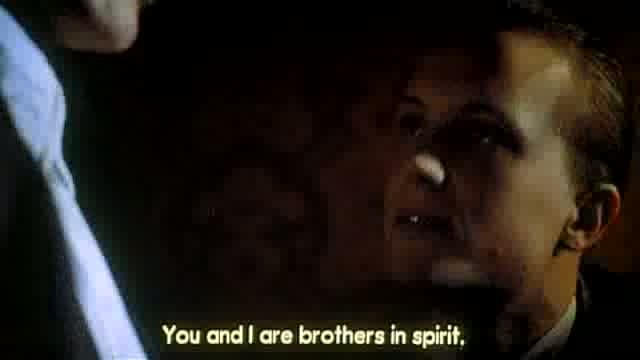Regie:
Volker SchlöndorffKamera:
Tomas ErhartMusik:
Alfred SchnittkeBesetzung:
Ulrich Matthes, August Diehl, Hilmar Thate, Bibiana Beglau, Ivan Jiřík, Adolf Filip, Zdeněk Pecháček, Karel Dobrý, Vladimír Fišer, Petr Janiš (mehr)Inhalte(1)
Urlaub vom KZ, das gibt es nicht – und doch widerfährt es dem Luxemburger Priester Abbé Kremer. Er entkommt auf Zeit diesem Ort, an dem es keinen Gott gibt. Zuhause angekommen, muss er sich jeden Tag bei der Gestapo melden. Dort begegnet er dem jungen, leidenschaftlichen Karrieristen Gebhardt. Scheinen die Machtverhältnisse am Anfang klar, so entwickelt sich im Lauf der neun Tage ein Rede- und Gedankenduell zwischen den beiden Männern, die unterschiedlicher nicht sein könnten, wenngleich sie sich im Glauben an Gott zu ähneln scheinen. Gebhardt versucht, Kremer als Bruder im Geiste auf seine Seite zu ziehen und somit quasi die Verbrechen des Nazi-Regimes durch die Kirche billigen zu lassen. Als dieser sich nicht wie erwartet bewegt, reagiert er ungestüm. Kremer ist hin und her gerissen, denn er trägt eine schweren Verantwortung: Bei einer Ablehnung gefährdet der Abbé sowohl sein Leben als auch das Leben seiner Leidensgenossen im KZ. Der Abbé gerät in einen unerträglichen Gewissenskonflikt (SWR Fernsehen)
(mehr)Kritiken (2)
A raw and intense story about a Luxembourg priest during and outside of a concentration camp. What I really appreciated was how the film doesn’t hold back—it dives deep into philosophical questions about faith, from top to bottom. Different people, different perspectives, and in wartime, those opinions can be pretty extreme, which left me thinking about the film long after it ended. Ulrich Matthes delivers an outstanding performance, and I totally believed the fear in his eyes in almost every other scene. If I were in the shoes of the real person this story is based on, I don’t think I would’ve lasted those nine days. The film captures the grim war atmosphere perfectly and moves at a solid pace. I’m surprised it’s not more well-known.
()
I've seen quite a few films about Nazis and extermination camps, but this one is special. The sad story of Abbé Henry Kremer shows the atrocities of the Second World War from the perspective of the Church. Dealing with philosophical questions of faith, conscience, and betrayal, Ulrich Matthes was undoubtedly a good choice for the role of a man who does not succumb to pressure and keeps his composure even when he is realistically threatened with death. The character of the young Gestapo officer Gebhardt is certainly intriguing, with his non-black-and-white nature, portrayed excellently by August Diehl. I cannot forget about the Czech mark left on the film by Karel Dobrý. In the small space of the commander of the Dachau concentration camp, he was so strongly etched in my memory that at times I felt as if he had perhaps been born an SS man. The Ninth Day is not a pleasant film to watch, but it will make you think about how you would act in a given situation. (80%)
()

